
Extreme nighttime sweating, NOT due to an overheated room, too many blankets, or hyper-insulating pajamas, is fairly common. In one study of 2,267 people visiting primary care physicians, 41% said they experience night sweats.
Sometimes we call excess nighttime sweating “night sweats” or severe nighttime “hot flashes.” These episodes are described as drenching sleepwear and sheets and disrupting sleep; NOT due to an overheated sleep environment. While not a type of primary focal hyperhidrosis, night sweats are something the experts at the International Hyperhidrosis Society often receive questions about. To help us get to the bottom of night sweats, we talked to the International Hyperhidrosis Society Board of Directors President and founding member, Dr. Dee Anna Glaser. Dr. Glaser is also Professor of Dermatology for the Saint Louis University School of Medicine, St. Louis, Missouri. (She is also registered in our hyperhidrosis Clinician Finder.)
"This is an important category," says Dr. Glaser. "Experiencing night sweats could be significant. Don't disregard it. Drenching night sweats or a change in your pattern of sweating has to be evaluated." Many different medical conditions can cause night sweats, she adds. To figure out what’s going on, visit your medical provider for a complete physical. Your clinician will likely obtain a detailed medical history (including travel history) and order tests to figure out whether there is an underlying medical issue at work.
Medications are also a common cause of night sweats. Frequent culprits are antidepressants (WebMD says 8%-22% of people taking antidepressants experience night sweats), other psychiatric medicines, hormone therapy, and medications taken to decrease the level of sugar (glucose) in your blood. Even medicine taken to lower fever (aspirin, acetaminophen) can lead to sweating. So can cortisone, prednisone, and prednisolone.
We should mention here that flushing is different from night sweats. Flushing is redness of the skin, typically of the neck and cheeks that is sometimes confused with night sweats. There are a number of drugs that can cause flushing, including: niacin, nizagara 100, tamoxifen, hydralazine, nitroglycerine, and sildenafil (Viagra).
If you suffer from night sweats, it is important to talk to a healthcare professional about it. Especially if the night sweats are accompanied by a fever or other symptoms such as unexplained weight loss. "Most night sweating is not idiopathic [from an unknown cause]," says Dr. Glaser. "There is usually an underlying medical condition that needs to be addressed." Tell your clinician about any medications you take, including over-the-counter and herbal or “natural” supplements or vitamins.
While you and your clinician figure out if there is an underlying medical cause for your nighttime sweating (a critical step!), there are things you can do to make bedtime more comfortable.
Another option may be to consider a climate-controlling, airflow bed cover. According to a research poster presented at the Annual Meeting of the North American Menopause Society, a climate-controlling bed cover equipped with airflow can help women experiencing night sweats to achieve improvement in sleep quality and daytime functioning. In a study involving 36 women, average age 49.8 years, those using an airflow bed cover experienced reductions in anxiety, irritability, muscle and joint pain, hot flashes, and night sweats. They also experienced improvements in mood, energy levels, the ability to fall asleep and stay asleep, and waking times (were able to sleep longer.) Additional improvements were seen in the effects of sleepiness on relationships with family, friends, and work colleagues. Sleep quality was improved in 83%-94% of subjects (depending on the scale of measurement used.)
For more information on night sweats, read our blog on the topic, and please remember to also talk to your medical provider about any nocturnal sweat problems you are experiencing. This is a common problem with a lot of potential causes and some are serious. A discussion with a healthcare professional is key to getting appropriate care. Depending upon the source of your nighttime sweating, there are some treatment options that might be recommended, including oral medications.
Love what you read here? Finally found some solid, smart information? Support our ongoing work with a donation of any size. We are a small non-profit organization with a huge mission. Thank you!
Latest Blogs